Unearthing Pennsylvania’s legacy of orphan and abandoned wells
Environmental Defense Fund is dedicated to finding and remediating the hidden hazards of orphan and abandoned wells that threaten our environment and public health in Pennsylvania, and beyond
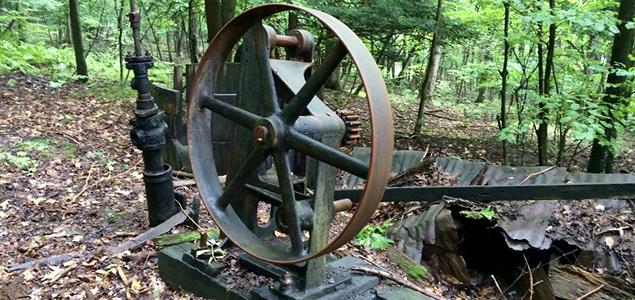
Need to Know
EDF and Moms Clean Air Force are working with partners (federal and state agencies, universities and private contractors) to pilot new methods of finding orphan and abandoned wells in Pennsylvania. There could be as many as 300,000 to 700,000 of these wells across the state, but only 30,000 have been documented to date. Our project began in autumn of 2024 in northwestern Pennsylvania where more than 250 potential wells were identified for verification in Clarion and McKean counties, and is continuing in the southwestern part of the state. There are hundreds of thousands of undocumented wells around the nation, and our work in Pennsylvania has helped to prove the effectiveness of new surveying methods that can identify their locations.
Upcoming Activities and Events
Northwestern PA:
- Verification of the more than 250 identified potential wells through drone survey is ongoing. If wells were found on your property, you should have received a letter. You can contact us for further information.
- Scientific teams will visit the area in August 2025 to measure methane emissions from the verified wells to provide additional data to our partners.
Southwestern PA:
- Three kinds of surveys will be ongoing through the fall in the following locations: Ross, Shaler, White Oak, North Fayette, Charleroi, and South Strabane. The maps are based on Pennsylvania DEP Mapping tools.
- Car surveys to measure methane emissions from potential abandoned wells have begun.
- Drone surveys are scheduled to begin in September. Drones will only fly in specific areas where stray gas cases have been reported. Landowners in these areas have been notified.
- On-foot inspectors with specially equipped backpacks with magnetometers that can locate potential wells will be deployed beginning in September based on the data from the car surveys and other information.
If you have any questions about any of these current activities, please contact us.
What are orphan and abandoned wells?
Every state defines them a little differently. In Pennsylvania:
Orphan wells: These are oil and gas wells left behind by their owners before 1985 and are no longer in service.
Abandoned wells: These are wells that haven’t produced in the past 12 months. While their equipment might be removed, they were never properly plugged.
These wells have not been plugged or cleaned up. They may still be polluting Pennsylvania’s air and water, harming people’s health, threatening property values, accelerating climate change, and hurting the local economy. They are all over the Commonwealth and could be in building basements, farm fields, forests, waterways, and around homes. They may even be in your neighborhood. The total number of orphan and abandoned wells in Pennsylvania is unknown but is likely in the several hundreds of thousands — best guesses are 300,000 to 700,000.
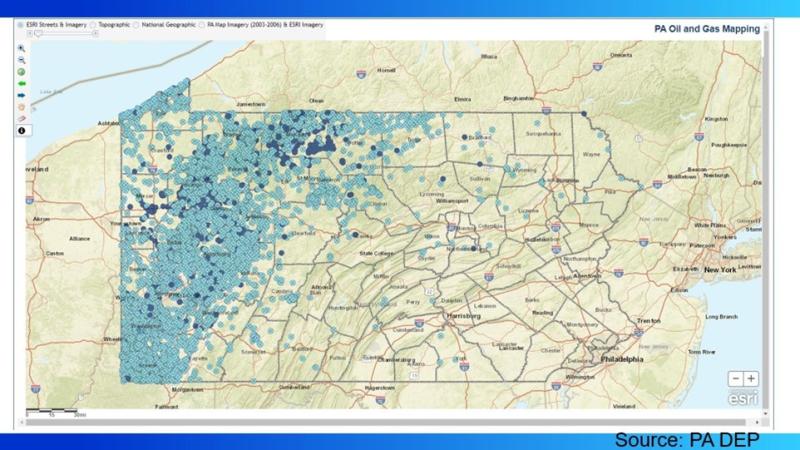
The above map shows the known wells in Pennsylvania. However, this captures perhaps only 10% of the true orphan and abandoned well population in the Commonwealth. The purpose of this project is to help find and document additional orphan and abandoned wells.
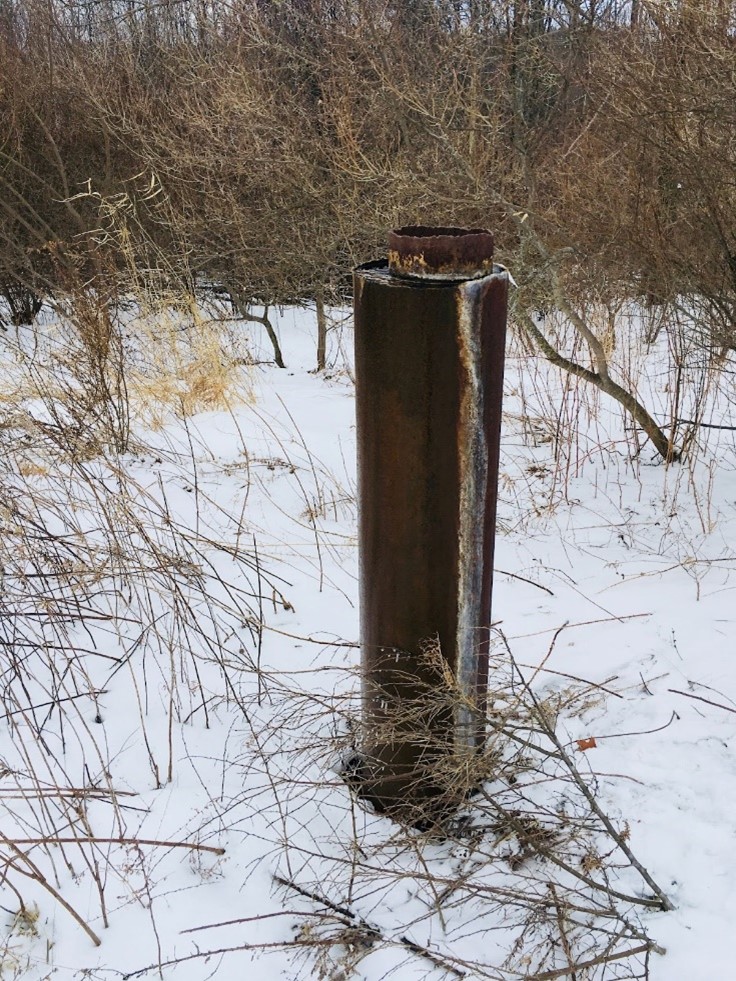
Why should we care?
Orphan and abandoned wells put the safety of those who live nearby at risk. They can leak oil, gas, and other toxic chemicals into our air, soil, and water. Children who live, learn, and play near orphan and abandoned wells and their pollution are especially vulnerable to harm. These wells also are a significant source of harmful methane pollution.
By finding wells, additional funding can be leveraged to create good paying jobs with local well plugging companies, increase property values for the landowners, and return lands for potential new, economically beneficial uses.
The project
In collaboration with the Pennsylvania Department of Environmental Protection (DEP), the Department of Energy (DOE), McGill University, Harrisburg University, Indiana University of Pennsylvania, Penn State Extension, the Oil Region Alliance and Moms Clean Air Force, Environmental Defense Fund (EDF) has launched a project to locate and address these wells in Western Pennsylvania. To locate these wells in Pennsylvania, we will use drone-mounted and backpack magnetometers, advanced methane detection and quantification technologies, and direct citizen outreach.
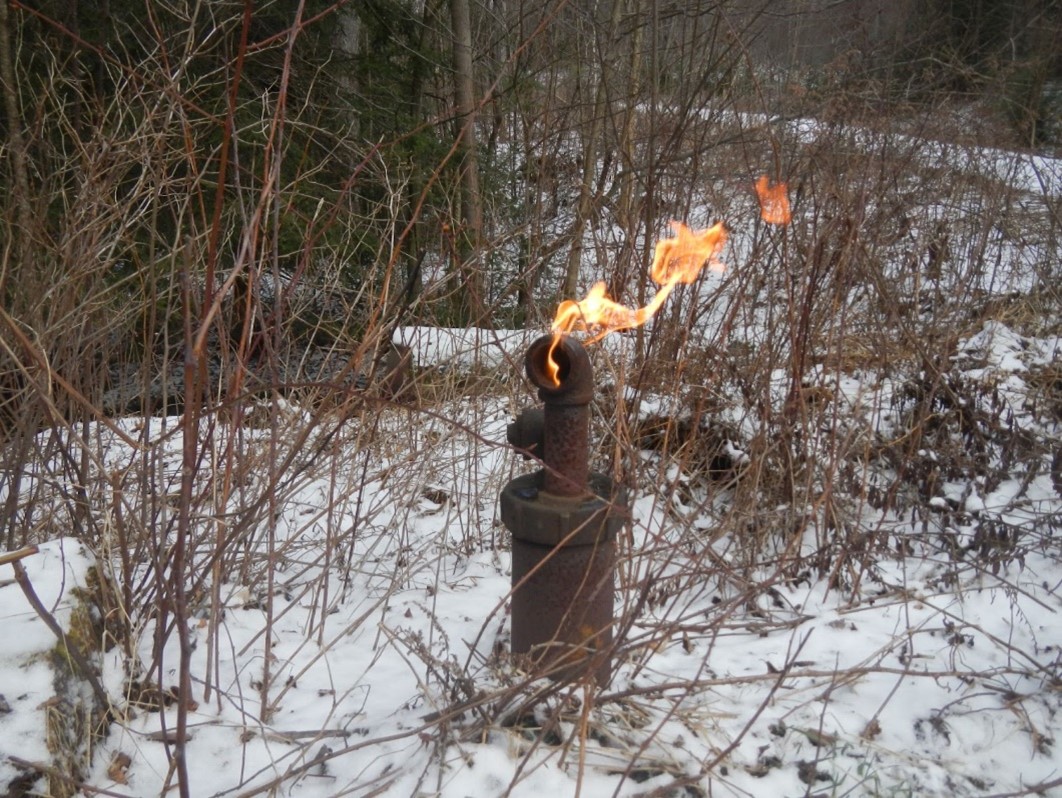
Focus areas
These locations were provided to us based on current and historical data, as areas with a high probability of having undocumented orphan and abandoned wells. The project began in rural Northwestern Pennsylvania from October to November 2024. On-the-ground field work has continued throughout this spring and summer to verify the location of wells detected and to measure methane leak rates from a subset of these wells. Work will begin in several areas of Southwestern Pennsylvania in August.
We are piloting methodologies for finding undocumented orphan wells in urban and suburban areas of southwestern Pennsylvania. In this area, towns and suburbs of Pittsburgh were built over unplugged wells. These wells are capable of leaking methane and air toxics, creating a public health risk, as well as fire and explosive, hazards within homes and businesses. Wells in built-up areas can be especially hard to find, especially where their casings were cut well below surface to accommodate coal mining .
A combination of techniques will be used to locate wells, starting with historic mine maps that indicate the locations of oil and gas wells and based on reports of fugitive methane gas. Methods will include methane leak detection with instruments mounted on cars, traversing roads close to suspected wells sites, surveys on sidewalks and roads using backpacks mounted magnetometers that can detect the metal casing of old wells, and fly-over surveys using drones mounted with magnetometers to detect wells casings.
Northwestern Pennsylvania survey areas:
- Clarion County: 8.5 square miles near St. Petersburg (view map)
- Venango County: 7 square miles south of President (view map)
- McKean County: 4.3 square miles south of Mount Jewett (view map)
Southwestern Pennsylvania survey areas:
- North Fayette
- Ross Township
- South Strabane
- Charleroi
Drone surveys will begin on Sunday, September 21. Click here to view the comprehensive list of flights by date and township.
Finding and addressing the wells
To address this problem, which is nationwide, this project in Pennsylvania is piloting techniques that the Department of Energy’s Orphan Well Program is developing to find these wells quickly and efficiently so that they can be properly plugged and abandoned. Our approach involves:
- Historic Map Analysis: Identifying regions with the highest probability of orphan wells.
- Aeromagnetic Surveys: Using drones to detect magnetic signatures and methane emissions.
- On-Ground Surveys: Verifying well locations and measuring methane emissions.
Drone technology
The drone, equipped with sensors, flies 100 feet above the ground, collecting magnetic and methane gas information. With these types of sensors, there is no private information collected, such as pictures or video of people or buildings, in the areas being flown. With the information gathered by these sensors, DEP staff can ground truth suspected oil/gas wells can be found.
Backpack Magnetometer Technology
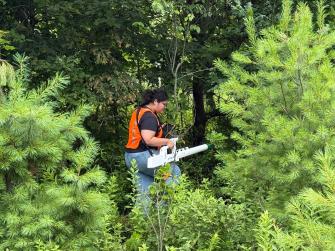
DOE researchers have had success with this technology locating wells in urban Los Angeles. Surveys in Southwestern Pennsylvania will start on sidewalks and roads in areas too densely populated for drone surveys. The equipment can detect the metal casing of old wells. Landowners will be contacted for permission to access property only if initial results indicate wells beneath property require further investigation.
Car-Mounted Methane Sensor Technology
Drive-by methane surveys will utilize technology similarly to what gas utilities do for identifying pipeline leaks. Cars mounted with methane detection equipment will survey the streets in areas of known gas leaks. Those gas leaks will be analyzed and reported to DEP or pipeline utilities, as appropriate.
What happens next?
If it is determined that the well is an emergency, DEP will address it as soon as possible. DEP will evaluate the risk of each well found and add it to the plugging schedule. More than 200 wells were plugged in 2023-24. Federal funding through the Infrastructure Investment and Jobs Act (IIJA) has the potential to provide ~ $400 million to plug and remediate Pennsylvania orphaned oil and gas wells through 2030. By finding and documenting additional wells, more federal funding (potentially billions in support) could be leveraged in the future. The status of well plugging and other detailed information regarding. IIJA plugging projects can be viewed at the DEP IIJA Dashboard at dep.pa.gov/IIJAOilGas.
Additionally, in response to a new state law, the DEP has established a grant program for accelerated plugging of orphan wells. By plugging these orphan and abandoned wells, we can create jobs, raise property values, cut pollution, tackle climate change, improve our health and create a brighter future for us all.
Abandoned and Orphan wells are a critical issue for Pennsylvania. It is our hope that this project creates a model for locating, mapping, and facilitating remediation of undocumented wells using advanced technologies. By doing so, we can work together to mitigate methane emissions and reduce the leakage of harmful chemicals into the environment, thereby protecting the health of our communities. This work also supports the economy of western Pennsylvania by raising property values where old wells are plugged, and creating family-sustaining jobs that will last decades given the scale of remediation work needed to overcome this problem.
For more information, please email us at paw@edf.org.
Additional resources
- Download a printer-friendly brochure here
- Learn more about DEP’s abandoned well program here
- See the Department of Energy's CATALOG on orphaned wells here
- View the Landowner Role in Orphaned and Abandoned Oil and Gas Wells energy training
- Abandoned Well Reporting Form
- Penn State Extension Webinar: Landowner Role in Orphaned and Abandoned Well in Pennsylvania
- January 29, 2025 Stakeholder Briefing Slides
Watch the Webinars
Southwestern Pennsylvania
Northwestern Pennsylvania
MEDIA CONTACT
Jacquelyn Kellar-Davis
(212) 993-0123 (office)










